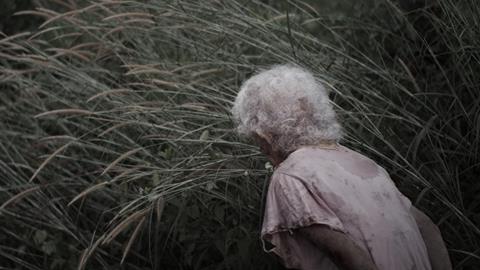The Thai director talks about his feature inspired by his parents car accident, which receives its world premiere in competition at International Film Festival Rotterdam (IFFR).

Thai director Jakrawal Nilthamrong’s Vanishing Point, his first fiction feature, is making a world premiere in Rotterdam’s Tiger Awards competition.
The director was inspired by a car accident his parents were in, and the newspaper picture of it that he grew up with, wondering how his life might have been different had the accident not happened.
“I think filmmaking itself is collecting memories,” says Nilthamrong. “At a certain point of the film, it’s reinventing itself. It becomes part of the document in itself, its “being-ness”.
“You are questioning what the film actually is, what documentary is and what fiction is. And it’s like questioning itself again.”
The story
Vanishing Point starts off with a young journalist who gets into a car accident following police investigating a rape. It then goes to an older man, a factory and motel owner whose daughter runs away from their unhappy home.
Searching in the jungle for her, the man encounters an immortal pregnant woman who is forever in labor, giving birth. A monk tells him he had sexual relations in a dream where the girl got pregnant forever and this became true.
After he sees the woman, the man becomes enlightened to the cause of suffering, and the next day he decides he wants to go back to Bangkok for the first time. Along the way, he invites his monk friend to come along and they get into a car accident and never get there. But this is not the end.
Shooting
The film was shot over the course of a year, with only a total of 12 or 13 shooting days with months in between principle and additional photography.
“When I speak to filmmaker friends, they say this is like the ideal way of making a movie because after you shoot the principle photography, you have time to edit the film and then know what’s missing,” says Nilthamrong.
“I can shoot the script and shoot the important part and then shoot what’s missing just to fill up the gaps.”
They shot in the countryside, in two main locations – one in the most Western part of Thailand and the other in the Eastern part.
“It has to do with the script, which is about somebody trying to go further away from Bangkok. The city is collecting painful memories from the past,” says the director.
Nilthamrong says production was fun because he was working with friends and his students on set “and they are new and they have an energy”.
He compares making the film to a kind of jazz, with improvisations.
“If you see the whole film, you’ll see we became really adaptable to the time frame, location and circumstances, and how the thing came together kind of like a live performance,” he said.
Funding, background and future
Made for roughly €175,000, the film was funded mostly by Nilthamrong’s Mit Out Films, a company he runs with friends, and by the Hubert Bals Fund. It also got support in the form of a research grant from Thammasat University, where he is a professor.
Several of his fiction and documentary shorts such as Patterns Of Transcendence (2006) and Orchestra (2008) screened before in Rotterdam, as did his feature debut Unreal Forest, a documentary shot in Zambia.
Nilthamrong says his next project is not a film, but an installation he’s going to make in Taipei and Hong Kong.







![The Brightest SunScreen[Courtesy HKIFF]](https://d1nslcd7m2225b.cloudfront.net/Pictures/274x183/3/5/0/1448350_thebrightestsunscreencourtesyhkiff_312678.jpg)

















No comments yet